In India’s fast-growing digital payments ecosystem, API reliability can make or break customer trust, empowering India’s digital payments ecosystem, the Indian startup ecosystem, and serving B2B SaaS businesses.
Razorpay is one of India’s leading fintech companies, revolutionizing the way digital payments are handled. For anyone new to this space, wondering “what is fintech?”, it refers to financial technology that uses software and innovation to improve banking, payments, and money management. For startups, especially fintech platforms, it ensures smooth onboarding and fast go-to-market, while for large enterprises, it safeguards brand reputation and revenue during high-traffic events.
Razorpay has built a robust testing framework that combines automated software testing services like functional validation, load and performance testing, and continuous monitoring to deliver 99.9% uptime, handling everything from routine transactions to massive festive sale surges without breaking a sweat.
💡 In this blog, we’ll explore:
📌 How Razorpay maintains API reliability for millions of transactions during peak festive sales.
📌 The complete API testing strategy from functional validation to load, stress, and network performance testing.
📌 Testing tools used by organizations like Razorpay such as Postman for API testing, Gatling for performance testing, and JMeter for load and performance testing.
📌 Real-world examples of how 99.9% uptime is achieved under high-traffic scenarios using scalable software architecture.
📌 Lessons businesses can apply to integrate API testing early, use staging environments, and ensure regulatory compliance.
Introduction to Razorpay and Its Role in India’s Digital Payments Ecosystem
Razorpay is one of India’s leading fintech companies, revolutionizing the way digital payments are handled. For anyone wondering “what is Razorpay?” — it’s a comprehensive platform that allows businesses to integrate the Razorpay payment gateway and other software services to seamlessly accept, process, and disburse payments. From budding startups to established enterprises, Razorpay has become the go-to choice for effortless online transactions.
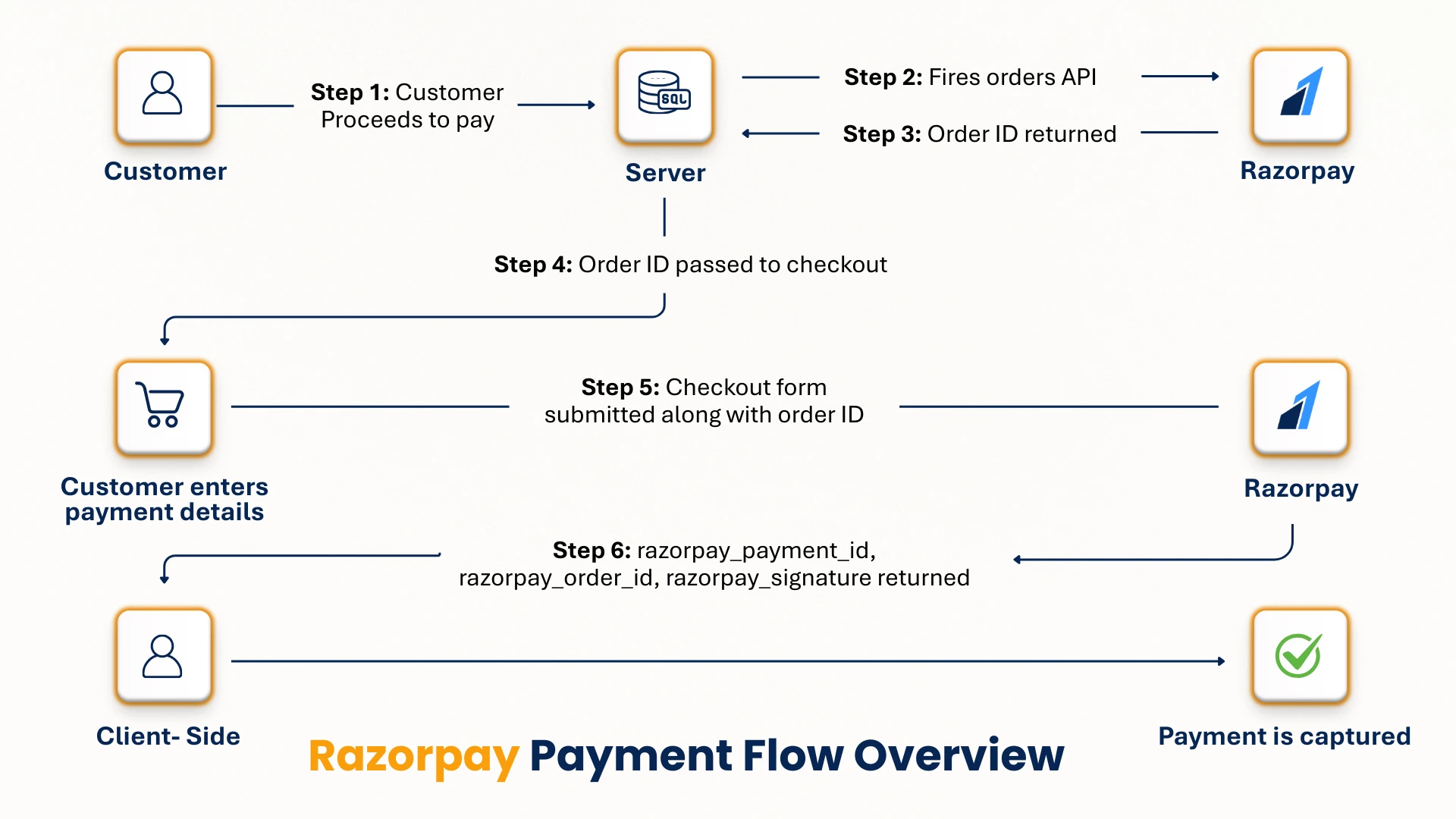
With features like Razorpay Payroll, businesses can automate employee salary payouts, integrating with an API Gateway, while merchants can manage transactions through a simple Razorpay login. Whether it’s creating a payment gateway link, integrating a payment API, making in-app payments, or setting up recurring billing, Razorpay plays a crucial role in empowering India’s digital payments ecosystem.
Why Razorpay is Trusted by Startups and Large Enterprises
From small Indian startups to large enterprises, Razorpay has established itself as a trusted payment solution in India’s fintech ecosystem. It ensures a smooth payment process for customers, which boosts conversion rates.
One of the primary reasons for this trust is high API reliability; businesses can depend on Razorpay’s APIs to perform consistently even during peak traffic events such as festive sales, product launches, or flash deals.
Feature-wise, Razorpay offers a suite of practical tools such as:
- Create a payment link instantly for a customer who prefers not to go through a checkout page.
- Send payment links via email, SMS, or WhatsApp, making it easy for customers to pay without navigating through multiple steps.
- Easy reconciliation, where payments are automatically tracked and matched against invoices, reducing manual work for finance teams.
Importance of API Reliability in Fintech
In the fintech world and digital banking, API reliability is not just a technical requirement; it is mission-critical to the success and sustainability of any business operating in this space. Payment gateway API failures, even if brief, can disrupt transactions, cause payment delays, and lead to frustrated customers abandoning purchases. This not only results in immediate revenue loss but can also cause long-term damage to brand reputation and customer trust.
The Importance of API Testing in Payment Gateways
When customers make payments using Stripe payment API, Razorpay payment gateway, or any other payment API, they expect the process to work flawlessly. This is why API testing is crucial.
API testing in payment gateways ensures that the integration between your application, including a web platform or a mobile banking app, and the payment service provider works as intended across different scenarios, including valid transactions, declined payments, network failures, and fraud detection triggers.
Common Risks of Poorly Tested APIs in Payments
- Payment Failures: Transactions may fail due to improper request handling or server errors, leading to lost sales and frustrated customers. Misconfigured authentication tokens or API credentials can also block payments
- Double Charges: Faulty logic or repeated API calls can result in customers being charged multiple times, creating refund disputes and damaging trust.
- Delayed Settlements: Processing delays and payment delays can hold up funds, disrupting merchants’ cash flow and operational stability.
- Security Vulnerabilities: Weak API validation or encryption gaps can expose sensitive financial data to fraudsters and hackers.
- Regulatory Non-Compliance: Inadequate testing may cause violations of PCI DSS or other financial regulations, resulting in penalties.
- Customer Trust Erosion: Even a single glitch in payments can harm the brand’s reputation and lead to customer churn.
- Operational Disruptions: Payment issues can trigger cascading failures and weaken fraud detection capabilities in inventory, order management, or accounting systems.
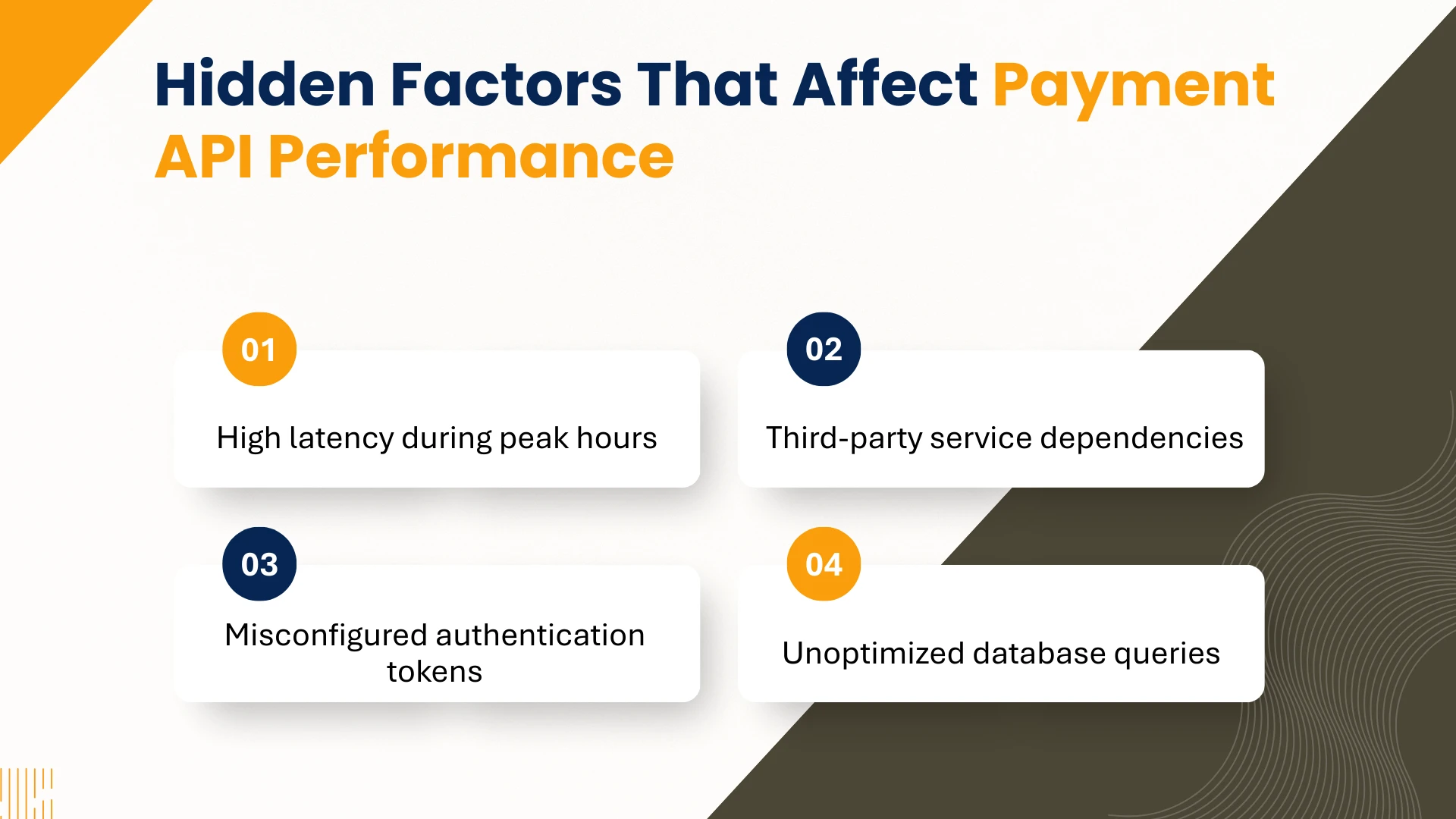
How API Failures Can Impact Businesses
API failures, especially during critical times like festive sales, product launches, or flash deals, can cause severe disruptions. A single outage may prevent thousands of customers from completing their payments, resulting in significant revenue loss within minutes. Beyond the immediate financial impact, failed transactions frustrate customers, damage trust, and weaken brand reputation.
In today’s competitive market, reliability is everything. If users repeatedly encounter errors or downtime, they are more likely to switch to competitors offering smoother, more dependable payment gateway api experiences. Over time, this not only reduces customer retention but also makes it harder for businesses to rebuild credibility.
Razorpay’s API Testing Strategy
Razorpay follows a robust software performance testing approach to ensure uptime and scalability. The strategy includes functional API testing(Verifying that each API endpoint behaves as expected), load testing, and network performance testing to ensure fast and consistent API performance for users and simulate real-world scenarios.
Razorpay’s QA team uses a free API for testing environments before deploying to production CI/CD pipelines and workflows (e.g., GitHub Actions), so every deployment is validated.
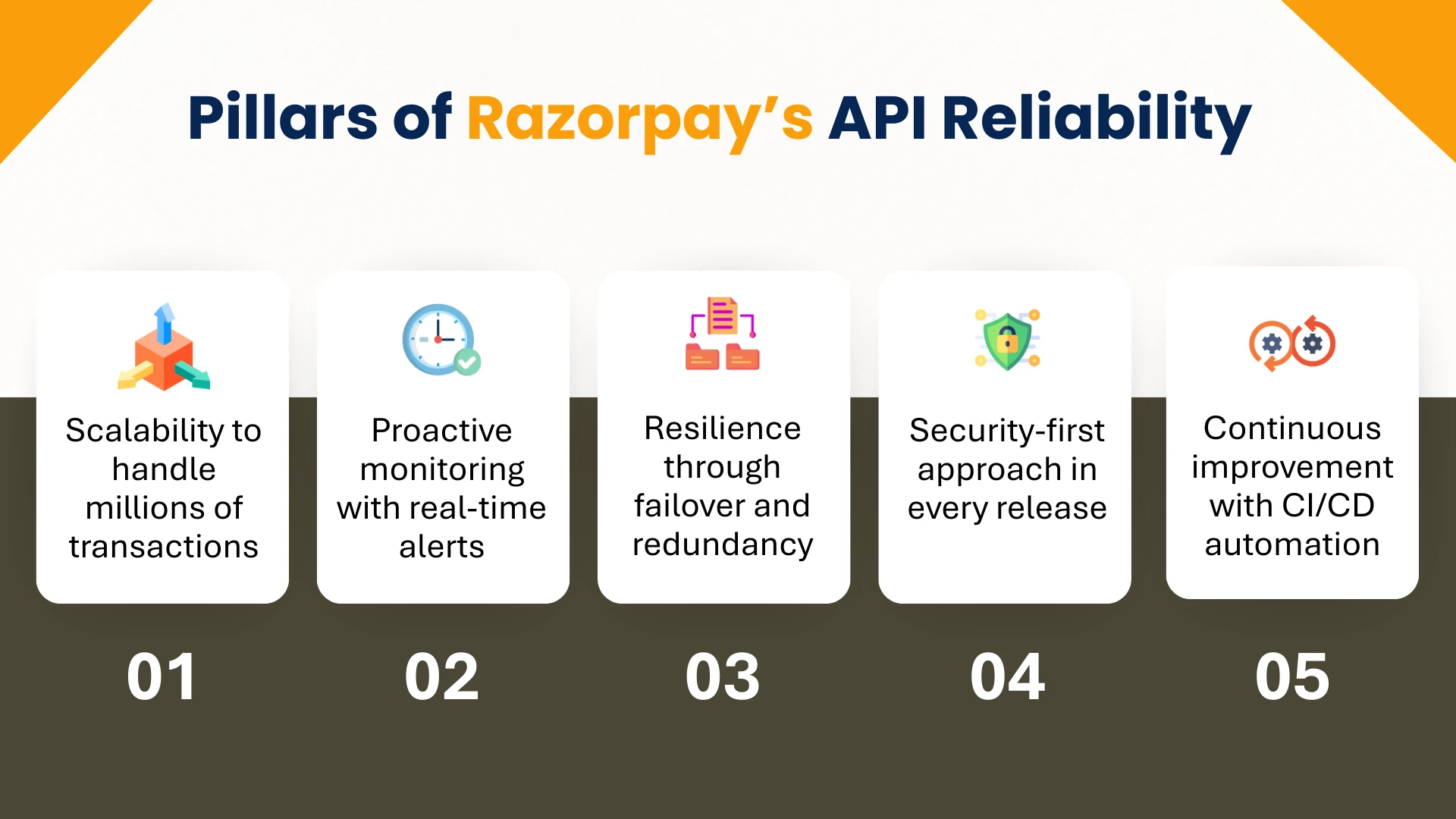
Key elements of this strategy include:
- Functional API Testing (functional testing): Verifying that each API endpoint behaves as expected, including payment creation, verification(including REST and GraphQL APIs), refunds, and settlements.
- Load and performance Testing: Simulating high transaction volumes and peak traffic conditions through load testing to evaluate how the system performs under heavy loads.
- Network Performance Testing: Assessing API response times, latency, and data transfer speeds across various geographies and network conditions to ensure fast and consistent user experiences.
- Regression Testing: Running automated test suites to ensure that new updates or features do not break existing functionality.
- Sandbox Environment with Free APIs: Providing a dedicated sandbox environment with free APIswhere merchants and developers can safely test integrations without affecting real transactions.
- Security Testing and other API security measures: Evaluating APIs using API security tools for vulnerabilities such as injection attacks, including penetration testing for deeper security assessment and unauthorized access.
- Continuous Monitoring & Feedback: Using monitoring tools to track API health in real time and incorporating feedback loops for rapid bug resolution before deployment..
Testing tools used by organizations like Razorpay
Razorpay maintains its reputation for high API reliability by leveraging a strategic mix of API testing tools designed for both functional validation and load, and performance testing. These tools, including automation tools, ensure that APIs perform flawlessly in real-world scenarios and can withstand sudden transaction spikes, which reflects an industry-leading approach to API testing services.
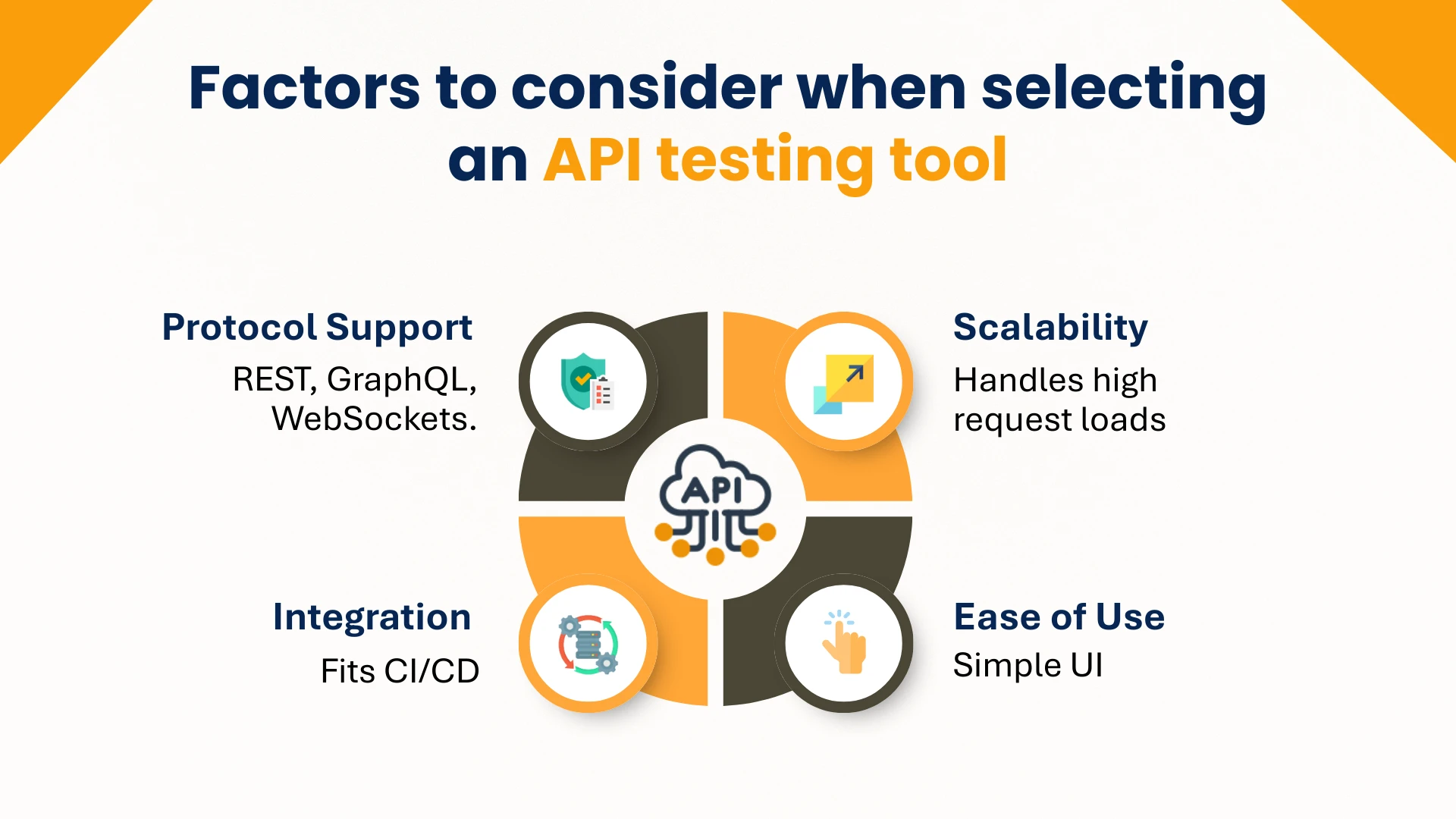
- Postman API Testing – Postman is used extensively for functional verification of endpoints, validating request/response payloads, authentication workflows, and regression testing.
- Gatling Performance Testing – Razorpay uses Gatling for simulating thousands of concurrent API requests, allowing engineers to assess latency, throughput, and stability under high loads.
- Performance Testing with JMeter – Apache JMeter plays a crucial role in performance testing tools at Razorpay. It is used for stress testing, load simulation, and endurance testing to ensure the payment APIs maintain stability under prolonged traffic surges.
- BlazeMeter for Distributed Load Testing – BlazeMeter complements JMeter by enabling large-scale, cloud-based performance tests across geographically distributed servers, replicating real-world payment traffic patterns.
By combining Postman API testing for functionality with Gatling performance testing and performance testing with JMeter for scalability, Razorpay ensures its APIs are not only correct but also fast, stable, and resilient. This comprehensive toolkit reflects an industry-leading approach to API testing tools and tools for performance testing in fintech environments.
Real-World Example: How Razorpay Ensures 99.9% API Uptime During Festive Sale Rush
During India’s festive seasons, such as Diwali, Navratri, or the end-of-year shopping bonanza, transaction volumes across e-commerce platforms can surge by 3–5 times the normal daily load. This sudden spike puts immense stress on payment gateways, often leading to failures if the systems are not adequately prepared.
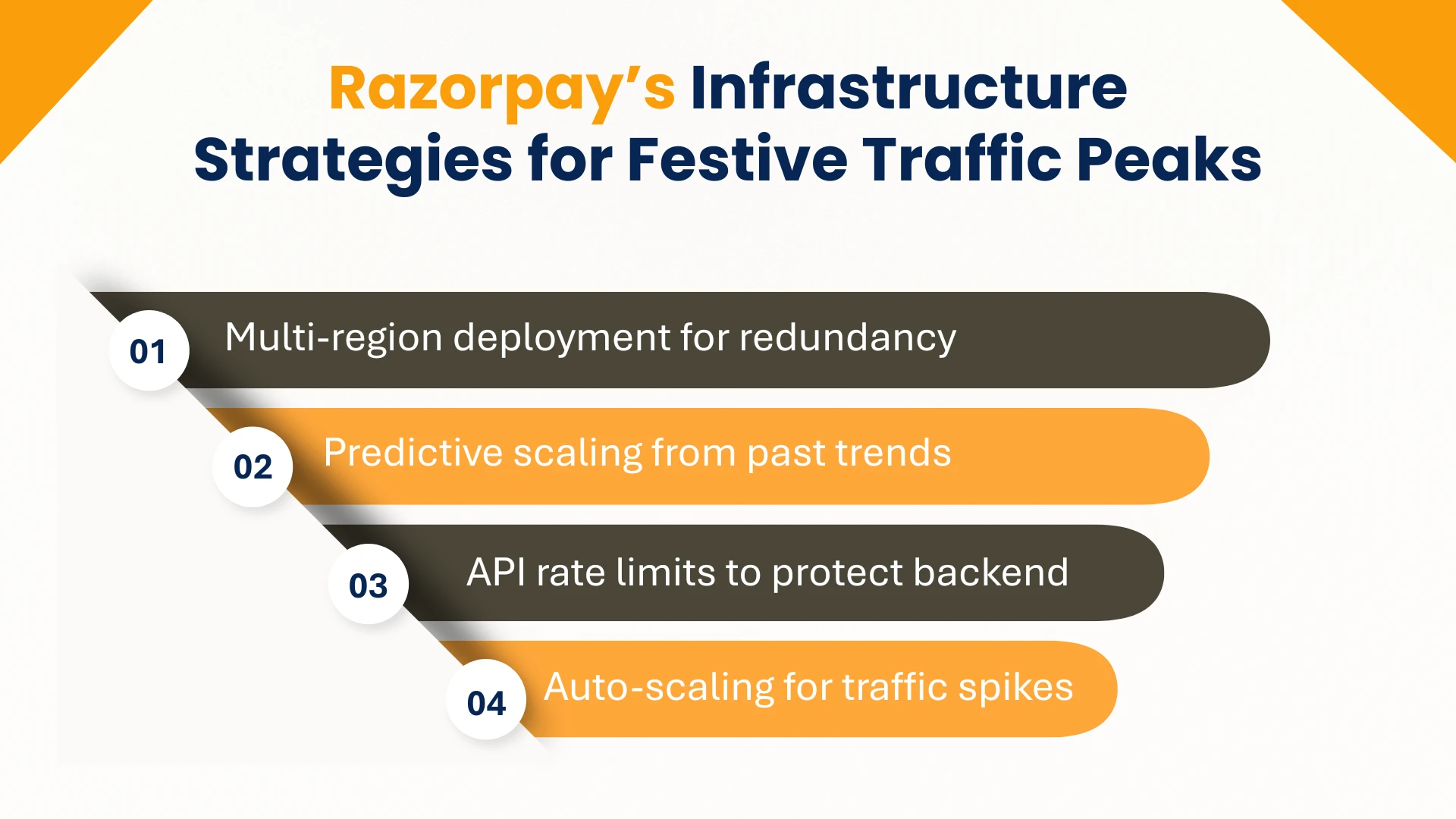
To maintain 99.9% API uptime, Razorpay adopts a proactive, multi-layered strategy with strict security protocols:
- Rigorous Pre-Sale Load Testing – Weeks before the sales begin, Razorpay’s engineering team runs high-intensity load tests that simulate peak festive traffic.
- Intelligent Load Balancing – By distributing API traffic intelligently across multiple servers and regions, Razorpay prevents bottlenecks.
- Auto-Scaling Infrastructure – Razorpay leverages cloud-based auto-scaling to instantly add server capacity during sudden transaction surges, ensuring uninterrupted service.
- Real-Time API Health Monitoring – Continuous monitoring tools track metrics like response time, error codes, and server utilization, allowing engineers to take corrective action within seconds.
- Failover and Redundancy – In the event of an outage in one data center, traffic is automatically redirected to backup systems without impacting merchants or customers.
Testing Payment APIs for Millions of Transactions in Hours
Razorpay’s payment APIs are designed to handle massive transaction volumes, but guaranteeing stability under extreme demand requires rigorous load and performance testing. In preparation for high-traffic events, the engineering team uses advanced tools such as Gatling, JMeter, and BlazeMeter to simulate millions of payment requests within just a few hours.
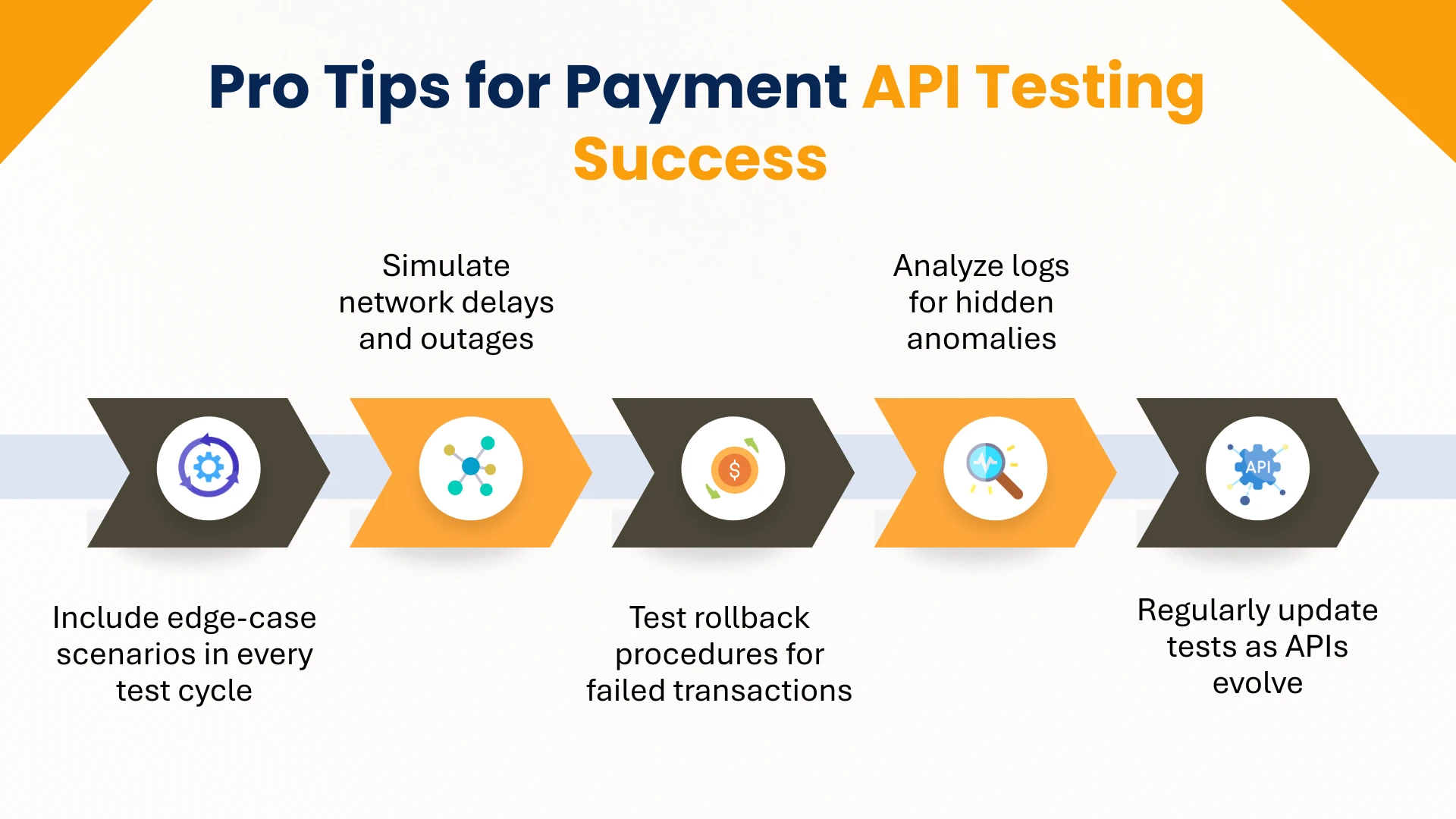
Handling Traffic Spikes Without Downtime
Payment systems face their biggest challenge during sudden and unpredictable transaction surges, especially during festive sales, flash discounts, or viral marketing campaigns. Razorpay addresses this challenge through a combination of network performance testing and robust, scalable cloud infrastructure. By simulating heavy transaction bursts in controlled test environments, the team can pinpoint potential latency issues, optimize API request routing, maintain seamless payment processing, and validate that the network can handle high concurrency without packet loss or service degradation.
Beyond testing, Razorpay’s architecture is built for elasticity. Using event-driven architecture, auto-scaling server clusters dynamically expand during peak loads, while intelligent load balancers distribute incoming traffic evenly to prevent bottlenecks.
Lessons Businesses Can Take from This Approach
Other fintech companies can learn to integrate API testing early alongside unit testing in their development cycle, use staging environments with a free API for testing, and perform regular software performance testing. Whether it’s to create a payment link instantly, integrate a payment API, enable in-app payments, or set up recurring billing, Razorpay plays a crucial role in empowering India’s digital payments ecosystem.
Here are some key lessons to note:
- Integrate API Testing Early – Start testing APIs during the initial development phase rather than waiting until just before launch. This helps catch functional and performance issues early, reducing costly fixes later.
- Use Staging Environments with a Free API for Testing – Create a staging or sandbox environment that mirrors production. Leveraging a free API for testing ensures developers and QA teams can validate integrations without risking live transactions.
- Perform Regular Software Performance Testing – Schedule periodic load and performance testing sessions to identify potential bottlenecks, validate scaling capabilities, and ensure readiness for sudden traffic spikes.
- Combine Functional and Performance Testing Tools – Use a mix of API testing tools such as Postman for functional checks and JMeter, Gatling, or BlazeMeter for performance validation, ensuring APIs are both correct and resilient.
- Adopt Continuous Testing in CI/CD pipelines and workflows (e.g., GitHub Actions) – Automate both functional and performance tests in your CI/CD workflows so every deployment is validated before reaching production.
FAQs
Q1. How much does it cost to integrate a payment gateway?
The cost varies by provider. Some charge setup fees, while others take a percentage of each transaction. Razorpay offers transparent pricing with no hidden charges.
Q2. What is the Razorpay API spec for merchants?
The merchant API spec includes endpoints for order creation, processing payments, initiating refunds, and accessing reports.
Q3. Is Google Pay API free?
Yes, the Google Pay API is free to use, though transaction fees may apply via the payment gateway.
Q4. How to check if the API is working or not?
Use Postman API testing or staging environments with a free API for testing to verify request and response data.
Q5. What is Razorpay test mode?
Razorpay’s test mode allows developers to simulate transactions without processing real payments. This is useful when you want to create a payment link or learn how to create a payment link in a safe testing environment.





%201.webp)

